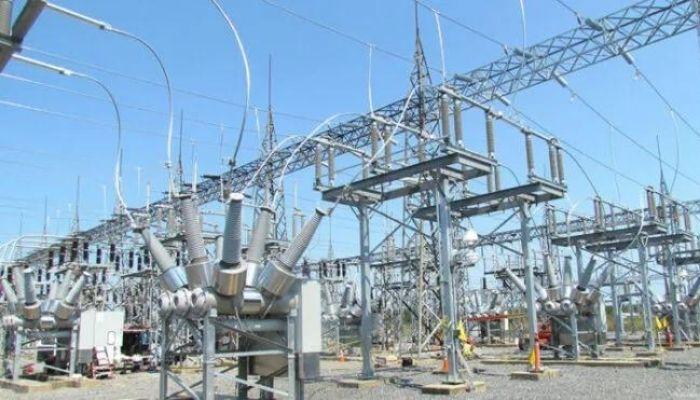Nigeria has reduced electricity exports to neighboring Niger Republic by 42 percent, slashing daily supply from 80 megawatts (MW) to just 46MW, according to Haoua Amadou, Niger’s energy minister.
The move has plunged Niger into severe power shortages, forcing state-owned utility Nigelec to implement extended blackouts while accelerating a consumer shift to solar energy.
Sanctions bite as power supply dwindles
The latest cut marks an escalation of Nigeria’s economic pressure on Niger’s military junta, which seized power in a July 26, 2023 coup that ousted democratically elected President Mohamed Bazoum. While Nigeria briefly halted all electricity exports under ECOWAS sanctions last year, it had partially restored supplies until this recent reduction.
“We now receive only 46MW compared to our usual 80MW allocation,” Minister Amadou confirmed in an interview with AFP. The deficit has crippled Niger’s grid, causing generation capacity to drop by 30-50 percent and triggering multiday outages across cities, including the capital Niamey.
Blackouts fuel solar adoption
With grid electricity becoming unreliable, Nigeriens are rapidly turning to solar power as an alternative. In Niamey’s Lazaret neighborhood, resident Elhadj Abdou told BusinessDay that rooftop solar panels have become ubiquitous.
“We no longer experience power cuts here, and there are no monthly bills—everything runs on solar now,” Abdou said. Chinese-imported solar kits, retailing for about 50,000 CFA francs (€75), now dominate local markets as households and businesses seek energy independence.
Read also: Firms cancel $8bn in renewables investment on Trump policies
Unpaid bills
Data gleaned from the Nigerian Electricity Regulatory Commission (NERC) revealed Niger, Benin, and Togo owe Nigeria a combined $35 million for power supplied in 2024
A breakdown of the debts showed that Togo topped with $15.61 million, Benin followed with $15.48 million and Niger with $3.42 million in 2024.
The issue of unpaid debts is multifaceted. In some cases, it stems from the financial constraints faced by the recipient countries, often exacerbated by their own economic challenges and infrastructure limitations.
In other instances, there are allegations of inadequate payment mechanisms and a lack of robust enforcement of payment agreements. Whatever the underlying reasons, the consequences for Nigeria’s energy sector are severe and far-reaching.
Experts said the non-payment of these substantial debts directly impacts the financial health of Nigerian energy companies. GenCos and gas suppliers rely on revenue from sales to cover their operational costs, maintain their facilities, invest in new technologies, and service their own debts.
When a significant portion of their revenue is tied up in unpaid invoices, their financial stability is jeopardised. This can lead to cash flow problems, making it difficult for them to procure essential spare parts, conduct necessary maintenance, and pay their own staff.
Chinenye Ajayi, team lead of the Power and Infrastructure Practice at Olaniwun Ajayi LP, described the rising debts as alarming.
“Nigeria doesn’t even have enough electricity, let alone exporting it. However, many GenCos sell power to these countries because our transmission infrastructure can only handle an average of 4,000 to 5,000 megawatts. For them, it makes commercial sense,” she said.
The international companies that buy electricity from Nigeria include Paras-SBEE, Transcorp-SBEE, and Transcorp-SBEE (Afam 3) in Benin Republic. Togo has Paras-CEET and Odukpani-CEET, while Mainstream-NIGELEC represents Niger Republic.
Read also: Kano eyes $10bn energy investment from Morocco
Further analysis revealed that these international companies recorded the lowest electricity debts in 2023, with $3.19 million, declining from $28.27 million the preceding year.
“Some argue that exporting electricity brings in foreign exchange, the lack of assurance in payment raises concerns,” Ajayi said.
She added, “It’s one thing to sell power for forex; it’s another to ensure payments are made. There should be mechanisms in place, such as bank guarantees, letters of credit, or even sovereign guarantees, to secure these transactions,” she said.
Analysis of the latest quarterly data by NERC indicated that these six international bilateral customers, receiving electricity from Nigeria’s power generation companies (GenCos), collectively paid $5.21 million out of a total invoice of $14.05 million issued by the Market Operator for fourth quarter of 2024.
This translates to a remittance performance of 37.08 percent.
Among the international customers, Paras-SBEE paid $2.65 million, while Paras-CEET settled $1.64 million. Transcorp-SBEE (Ughelli) remitted $1.71 million of its $3.59 million invoice, while Transcorp-SBEE (Afam 3) paid $0.90 million out of $1.2 million. Meanwhile, Odukpani-CEET owes $2.37 million.
The only exception was Mainstream-NIGELEC, which fully cleared its $2.60 million invoice for the quarter.
On the domestic front, bilateral customers collectively paid N1.25 million out of the N1.98 million invoiced to them, reflecting a 63.36 percent remittance rate.

